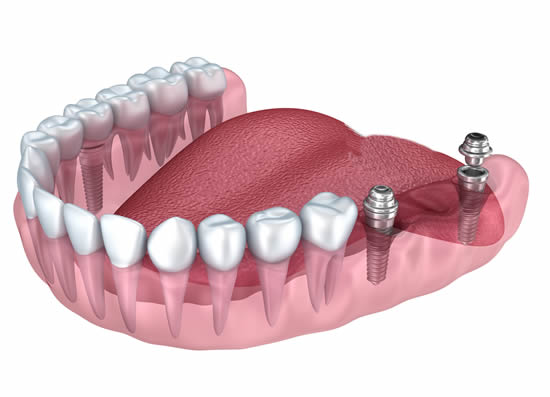
Dental implants are rapidly becoming the number one choice when it comes to replacing missing teeth. Dentures are still some people’s first choice and can still be useful for some people but there is little doubt though, that implants offer the more realistic artificial tooth, offering a greater degree of strength and stability.
Implants are, of course, made from completely artificial materials and it may be tempting to think that therefore, nothing can go wrong, even if you don’t look after them. This would be a really bad mistake, and while the implant won’t deteriorate, deterioration of the bone holding it in place can cause problems including loose implants or implants that fail altogether.
In today’s blog, we will take a look at how to take care of your implants, from day one of their placement.
You have your brand new implant in place and you have left the Clarence Dental Practice and have now returned home. This is an absolutely critical moment for your implant. It can be tempting to go straight back to your normal life but this can present significant problems if you don't follow the immediate care instructions.
The first thing that you should do is to rest. Resting aids recovery and minimum movement is ideal. Ideally, we recommend that you book a few days from work when you are due to have the procedure to help with this. Under no circumstances should you do anything unnecessarily strenuous for a short while to allow the osseointegration process to start to take place (where the implant and jaw bone start to fuse together).
During this time, anything that you consume will need to be in liquid form. Soups are the order of the day when it comes to your mealtime. It might be a good idea to prepare several thin soups in advance and freeze them so that you have some in stock. This helps to avoid any stress at all being put on the implant. You should not brush your implant initially either and we will provide you with cleaning instructions following your treatment.
After the first few days of recovery, you might need to return to work and start to do some light housework etc. Again, you should be very cautious with this and not do anything too strenuous. In particular, you should not do anything that jolts the body and might cause the implant to work loose. Using a pneumatic drill would certainly fall into this category but even similar but less violent movements could also do this. You should also be careful if you participate in physical activities. Sports such as football are out for a while and even running or jogging should be avoided due to the pounding of the feet on the road surface which can jar the body.
After a short while, you can start to introduce soft foods such as mashed potatoes and well cooked pasta. Always veer on the side of caution here though and don’t take any chances. With your dentist’s agreement, you will soon be able to gently brush around your implant with a soft toothbrush, paying particular attention to the gums.
Although a lot of focus of care for your dental implants is on the first few months while the implant fully integrates with the bone, long term care is just as important. At this stage, you can treat your new implant as you would a healthy natural tooth and eat whatever you want.
To a large degree, cleaning the implant is the same as cleaning your teeth. We recommend that you do clean the implant itself with general brushing while you brush your teeth. You should especially pay attention to the gum area though. The biggest threat to your tooth implant is gum disease, and especially advanced gum disease known as periodontitis. This not only attacks the gums but can also cause the bone to degrade, if this happens, the implant can become loose or fall out.
Thankfully, looking after your gums isn’t too hard to do and just requires a bit of extra care. You will have been told not to smoke following your implant as this is one of the leading causes of gum disease and greatly increases the risk of implant failure.
Cleaning the teeth well is essential and you should always angle the brush into the gum line to remove food and bacteria that may have become trapped there. You should also introduce dental floss to your daily routine if you don’t use this already (hint .. you should!) If you find it difficult to do, please ask one of our Staines dentists to show you how to do it. It just takes a little practice and it will then quickly fit into your daily routine.
Finally, make sure that you see our hygienist at six monthly intervals. As part of these visits, you will receive a non-invasive treatment known as a scale and polish. This removes tartar (hardened bacteria and minerals that form a hard crust) from the teeth and gum line. This is a great way of keeping your gums in good health, and consequently, your tooth implant too.
If you would like any further advice on aftercare for your implant, or are interested to find out more about them and if you are suitable, we are here to help. Simply contact us to arrange a consultation by calling the Clarence Dental Practice on 01784 463 695.
Address: 21a Clarence Street, Staines upon Thames, Surrey, TW18 4SU
Location Map